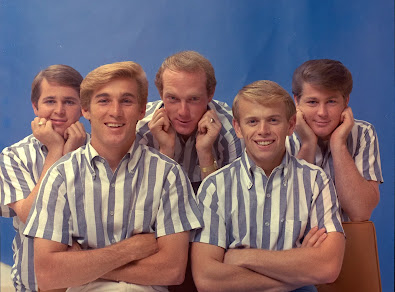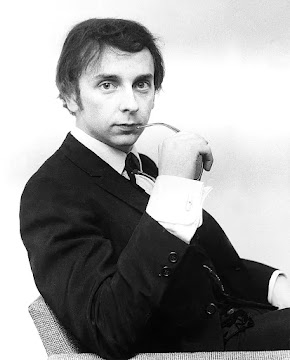What I’m going to write about this week, is still in the recent past—the early 2000’s. It's about two forgotten people: one a beautiful but unknown actress, and the second a revolutionary from the early days of Rock and Roll. But, in the ephemeral memory of many Americans, who even knows who Lana Clarkson or Phil Spector were? I guarantee you, that many of you reading this epistle, are scratching your respective heads.
First, why would an historian be writing about this crime? You might be thinking, 'because you're clearly fascinated by crime, silly!' There is truth in this. I have always thought that certain crimes can dramatically provide an accurate snapshot of a time and place. The murder of Lana Clarkson is certainly no exception, because it was a grisly end to the career (and life) of someone who changed the face of American rock and roll music.
And, there is no denying that R&R of the 50s, was dramatically influential in shaping the youth culture of the 1960s. It has always been amazing to me that within 12 years, we went from this:
To this:
Sigh. As I was born in the mid-sixties, I happily avoided the counter-cultural movement. By the 70s, when I was marginally compus mentis, the hippie had become more of a fashion statement. As I grew older, I always viewed these guys as a passing phase--a kind of reaction to the hyper clean 'face' of the 1950s, and early 1960s.
Music did and did not reflect these changes in the burgeoning American youth culture. If you look at the early days of rock, you come up with figures like Chuck Berry, Fats Domino, and Elvis Presley. Yes, there were others, of course, but I'd like you to take a look at a 'crooner' from the early 50s first to aid in gaging the distance between the two styles:
Mel Torme, the velvet fog
I trust that this gentleman needs no introduction: the magnificent Chuck Berry, and "Johnny B Goode."
Quite a difference, right? In the fifties, rock and roll was popularly associated with people of color, but there were others, like Elvis, and Jerry Lee Lewis, creating classics like "Great Balls of Fire" (cough), and "Jailhouse Rock."
It would take a little while for rock to make the transition towards mainstream popular culture, however, and indeed there was a bridge across this great divide. So, one might ask the question, what type of youth-oriented music provided that passage? That's another vexed question. I would probably answer with 'a variety of sources,' and one of them was Phil Spector.
I know. That really sucks.
By the early 1970s, Spector retired into a succession of large mansions that he fashioned into elaborate prisons. Save for one period where he married and had two children, he knew little peace or normality. He faded from public awareness, his contributions to American modern music largely erased from the minds of people not knowledgeable in the industry.
And so, Spector's nasty little drama continued, gradually rendering him both reclusive and sad. Poor little billionaire, right? Well, such was his state until February 3rd, 2003. The night before, he had been to a series of clubs, finally ending up at the House of Blues. Witnesses later reported his steady drinking throughout the evening. At some point, he met a hostess to the VIP lounge at the H of B. She was a statuesque beautiful woman, named Lana Clarkson. Spector stayed until the club's closing, and at some point as Clarkson was getting off work, security cameras showed her leaving with him in a limo.
Enter Ms. Clarkson
Now, we need to speak about this lovely lady. She was born in 1962, to a solidly middle class family. In 1978, her family moved to the San Fernando Valley, and it was at this time that she began to pursue a career in modeling and acting. She had a memorable, but small part in the 1982 movie "Fast Times at Ridgemont High." She was also an extra in "Scarface."
Lana worked several times with cult movie filmmaker Roger Corman, starting with "Deathstalker," where she played a type of warrior princess. She went on to make "Barbarian Queen" in 1985. Think Xena, OK? She followed up this with "Amazon Women on the Moon," and then "Barbarian Queen II: the Empress Strikes Back."
Oh dear.
Hollywood can be a cruel place. The entertainment industry is both merciless and brutal, grinding up and spitting out talented people. Lana was certainly no exception. Success in the film industry eluded her.
In remembering her, friends described a vibrantly optimistic woman with considerable charm. She was additionally determined to keep trying to pursue acting, and worked as a hostess at the House of Blues, obviously hoping that someone would notice her....
Last Day: February 2nd and 3rd.
We last saw Clarkson and Spector leaving the club in the early hours of the 3rd. Upon arriving at his home, "Pyrenees Castle," (Jeez. Can you say 'pretentious'?) Spector and Clarkson got out and went inside. That was the last time she was seen alive. Not too long afterward, local police received a call from the driver, Adriano de Souza, after Spector came out the front door allegedly saying "I think I killed someone." He'd also heard a loud noise, which later turned out to be a gunshot.
Minutes later, police arrived, to find an obviously impaired Spector, and a very dead Clarkson. She had a single gunshot wound to the mouth. Spector immediately (and drunkenly) claimed that Lana had killed herself, and that he was blameless. But, the police didn't exactly buy this, and he was arrested on the spot.
In spite of damning circumstantial evidence, there were fundamental questions, such as 'why'? Another example: Spector's fingerprints were not on the gun. Further, gunshot residue was only found on the victim's hands, and not on Phil's.
Spector immediately proclaimed his innocence, stating that Clarkson had shot herself. Umm, again one has to ask why she would commit suicide in the house of a stranger? The police certainly found Phil's statement unbelievable, and based on the driver's initial testimony, the police arrested Spector on the spot. He was held on a huge bail, which (of course) was promptly paid.
From the beginning, the media focused on Clarkson as a "b-movie actress," rather than her as the victim. There are countless clips of news people referring to her as a 'hopeful,' 'struggling' actress. Honestly, who cares? Once the coroner ruled her death as a homicide, she was the victim of a violent attack, which is always a tragedy. And what made this whole event especially horrible, was all the attention paid to Spector, which brought to light some uncomfortable truths about ourselves: at the end of the day, don't we view crime differently, if the perpetrator is a celebrity?
I ask you to remember the obvious example: O.J. And, let's not forget the point made so adroitly by Elizabeth Taylor: "there is no deodorant like success." Why do moderns have such a difficult time remembering that fame doesn't equal magic faery dust, or automatic innocence? Famous people commit crimes all the time.
Spector's trial began in April, 2007, among the successive throng of lawyers representing him were Leslie Abramson (fresh from her gig at the Menendez brothers' trial), Robert Shapiro (yeah, you remember him, right?) and former mob attorney Bruce Cutler. Quite a legal rogue's gallery, right? The strategy of the defense was mainly to underscore the suicidal tendencies of the deceased, and the paucity of physical (i.e. forensic) evidence.
Meanwhile, the prosecution called a number of women who'd previously tangled with Spector. From their testimony, a clear pattern of sexual violence emerged, in which guns figured prominently. It's interesting that if you carefully compare the stories of these witnesses, there are striking similarities. No, it's not the proverbial 'smoking gun,' but it was compelling testimony. Still it was not enough. The trial ended in a hung jury.
But, the prosecution wasn't done yet, and they quickly geared up to try Spector a second time in October, 2008. By April, 2009 he was convicted of second degree murder, and sentenced to 19 years (to life) in prison. He was 69. He died, still incarcerated, in 2021.
When all is said and done, this is a horror story about the unnecessary murder of a young woman, by a profoundly disturbed rich man. Can we take any lessons away from this? Maybe just one: everyone must be accountable before the law, talented (i.e. high powered) lawyers or not. Perhaps, just perhaps, our legal system occasionally works.
Just something to keep in mind. Until next week...






.jpg)
Comments
Post a Comment